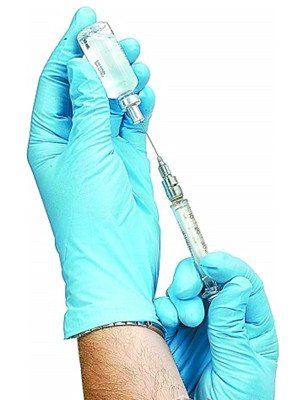(单词翻译:单击)
If you've ever had major surgery, you probably remember lying down and waking up–but nothing inbetween.
如果你曾经动过手术,你可能会记得躺下和醒来这两个动作,但是对中间发生的事情一无所知。
Thanks to the anesthesiologist, during the actual surgery you were out of it: immobilized andinsensitive to pain.
多亏了你的麻醉师,在实际的手术过程中你对疼痛全然不知。
But until recently scientists had little understanding of how anesthetics actually work on the cellular level.
但直到最近科学家们对麻醉药如何在细胞水平上发挥作用仍然了解甚少。
That's changed thanks to recent experiments performed by researchers at the University of Zurich, in Switzerland.
归功于瑞士苏黎世大学研究人员的最新研究,这种情况得以改变。
They knew that anesthetics caused pain receptors in the brain to turn off by acting likemost drugs do:
他们知道正如许多药物那样,麻醉药让大脑里的疼痛受体处于关闭状态。

anesthetizing drugs attach to particular sites on nerve cells and turn them off.
麻醉药依附在神经细胞里的特定区域,并对它们进行麻醉。
Thequestion was, where on nerve cells do these drugs attach?
问题是,这些药物是依附在神经细胞的的哪个部位呢?
Nerve cell membranes have receptors for different kinds of chemicals produced by the brain.
神经细胞膜针对大脑产生的各种化学物质都有受体。
Gamma-amino butyric acid, or GABA, for example, is a chemical thatshuts down nerve cells.
如γ-氨基丁酸或伽马氨基丁酸,都是可以使神经细胞关闭的化学物质。
The hypothesis was that general anesthesia works by binding to GABAreceptors on a nerve cell, thereby activating the receptor and instructing the cell to shut down.
假设全身麻醉与神经细胞上的伽马氨基丁酸受体有关,那么可以激活受体,指示细胞关闭。
So itmade sense for the Zurich researchers to focus on GABA receptors.
因此苏黎世大学研究人员认为应该着重研究伽马氨基丁酸受体。
To do this they worked with mice that had been genetically engineered to have nerve cells with GABA receptors that wouldn't respond to anesthetics.
为了此项研究,研究人员们用经过遗传工程处理后的老鼠做实验,这些老鼠的伽马氨基丁酸受体不会对麻醉药起反应。
And sure enough, when such mice were givenanesthetic drugs they weren't nearly as immune to pain as regular mice that had also been given pain-blocking drugs.
果然,这些老鼠在注射了麻醉药后并不像正常的老鼠注射了麻醉药那样,对疼痛免疫。
Clearly, GABA receptor sites on nerve cells are part of what allows anesthetics to dotheir job.
显然,在神经细胞上的伽马氨基丁酸受体就是麻醉药发挥作用的地方。
While the Zurich experiment fills in only one piece of the puzzle, it is an important step towards learning how these amazing drugs work, and how to make them even better.
尽管苏黎世大学的实验只解决了谜团中的一小部分,但是研究麻醉药是怎样工作的以及怎样让它们工作的更好仍是非常重要的。


